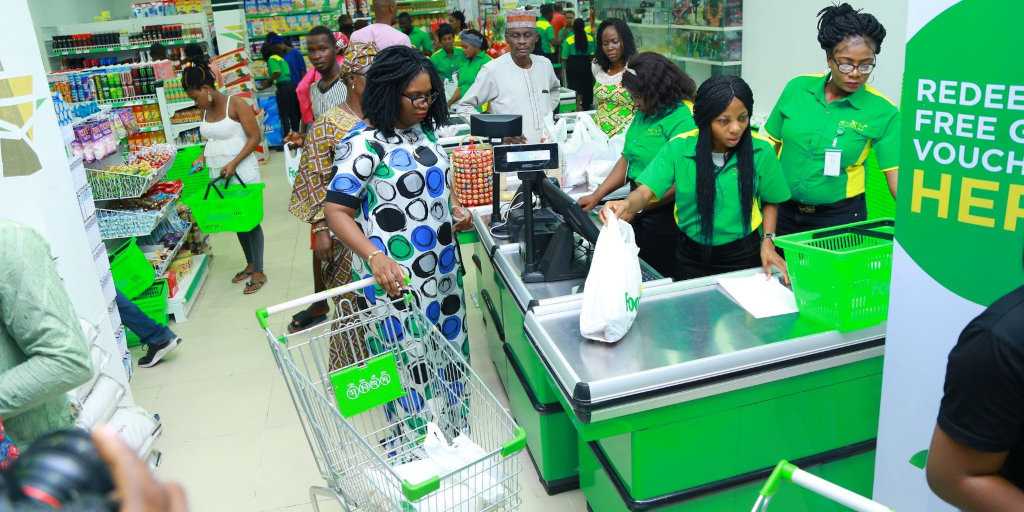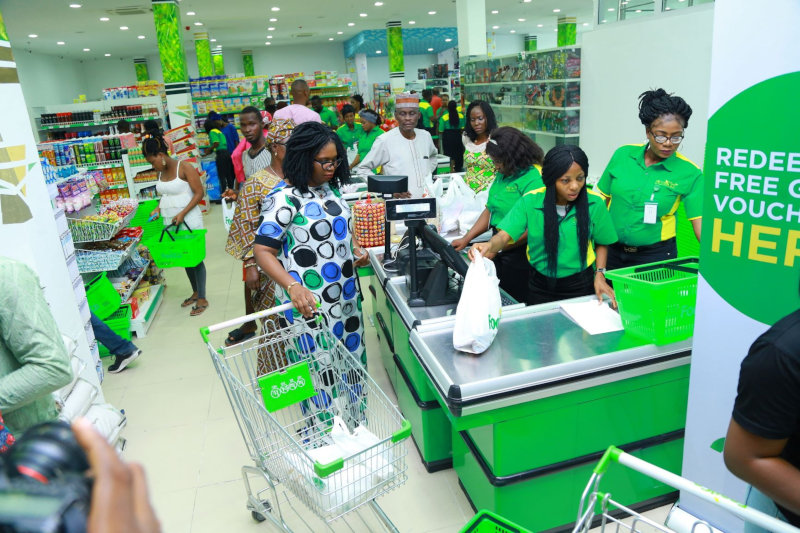
Ade Sun-Basorun, CEO of FoodCo
Ade Sun-Basorun is the chief executive of FoodCo, a Nigerian retailer and consumer goods company. In this interview, he talks about the company’s growth, the challenges of operating in Nigeria, and the lessons he has learnt in the retail industry.
FoodCo was recently ranked by the Financial Times as one of Africa’s fastest-growing companies. When we last spoke in 2020, the company had 11 stores. How has your store footprint evolved since then?
The recognition by The Financial Times of London is a testament to the hard work and strategic expansion we’ve undertaken. When we last spoke in 2020, we had just celebrated a significant milestone: opening our very first outlet outside of Ibadan, in Lagos, the commercial nerve centre of Nigeria.
Since then, our store footprint has grown remarkably. We’ve significantly increased our presence in Lagos, adding two new stores, including the recent launch of our first Lagos mainland outlet, which was a major strategic move for us. We’ve also successfully expanded into Ogun State, with three thriving outlets in Abeokuta, and with plans firmly in place to launch our fourth there soon.
Overall, our store count has doubled since 2020. We’ve grown from 11 stores to 22, and we’re on the cusp of launching our 23rd outlet. This growth reflects our commitment to bringing quality and affordable retail experiences to more communities across the southwest Nigeria.
What factors do you believe have contributed to FoodCo’s rapid growth in recent years?
Our rapid growth at FoodCo can be attributed to a combination of factors.
Firstly, our strategic vision is to be the foremost retailer of consumer goods in the southwest region of Nigeria and beyond. This vision is at the heart of our expansion. This vision guides all our decisions, from location scouting to product offerings, ensuring we’re building a sustainable and impactful presence.
Secondly, we keenly observe the market, and what’s clear is that modern retail, as we understand it, is still quite nascent in Nigeria. When you compare us to countries like Kenya, South Africa, or even Côte d’Ivoire, there’s a significant gap in the market for convenient, well-stocked, and affordable shopping experiences. We see this as a huge opportunity to fill that void, bringing the benefits of modern trade to more communities who are eager for it.
And finally, the dynamism of Nigeria’s growing population is a fundamental driver. With more and more people, there’s an ever-increasing need for accessible places to get quality groceries, enjoy delicious cooked food, and even find safe, family-friendly recreation all at prices that work for everyday Nigerians. We’re positioned to meet these evolving needs, ensuring that as the population grows, FoodCo grows with it, serving a wider and wider customer base.
Which retail formats are currently your sweet spot?
Our ‘sweet spot’ at FoodCo really lies in our comprehensive, omnichannel retail model that goes beyond just shopping to offer a complete lifestyle experience for our customers. We understand that today’s consumers are looking for convenience, quality, and value, all in one place, and that’s exactly what we deliver.
Under one roof, we offer well-stocked supermarket aisles where customers can find a wide range of quality and affordable groceries. Right alongside that, we have our restaurant serving delicious and equally affordable meals, catering to those who want a quick bite or a relaxed family meal. To further enhance the experience, we’ve taken things a step higher with our games arcade, providing wholesome entertainment through both board and video games making us a true destination for families and individuals.
But our reach extends beyond these physical brick-and-mortar locations. We also offer online shopping. This allows people to shop from the comfort and convenience of their homes, ensuring that no matter how our customers prefer to shop, FoodCo is there to meet their needs. This integrated approach, blending physical retail with digital accessibility and offering a diverse range of services.

A FoodCo branch in southwestern Nigeria.
Can you tell us more about your current manufacturing operations?
Our manufacturing operations are a really important part of the FoodCo story, allowing us to deliver on our promise of quality and affordability directly. Currently, we’re proud to produce two fantastic product lines under our Sunfresh brand.
Our flagship product is the iconic Sunfresh bread. It’s a brand that’s genuinely loved by families across Oyo, Lagos, and Ogun States, all within the southwest region of Nigeria. We offer the Sunfresh bread range in various variants to cater to different tastes and preferences, and its consistent quality has truly made it a household name.
Beyond that, we also manufacture Sunfresh Ice Cream. This is a smooth, delicious, and very affordable brand that has quickly gained a strong reputation, even ranking high among other gelato ice cream brands in our market. We see huge potential here, and we’re actively planning to expand Sunfresh Ice Cream into the mass market with pre-packed retail sizes that will make it even more accessible to everyone.
Looking ahead, we’re continuously exploring opportunities to expand the Sunfresh brand even further into other exciting product categories. This allows us to leverage our manufacturing expertise and brand equity to bring more value to our customers.
What are the toughest aspects of running a successful retail business in Nigeria?
One of the toughest challenges at the moment is the macroeconomic condition of the country. High inflation is significantly affecting consumers’ disposable income, leading to reduced purchasing power and more conservative spending habits. In addition, inflation has driven up interest rates, which in turn has led to a higher cost of capital. This poses a major hurdle to our expansion plans, as funding new projects becomes increasingly expensive.
Despite these challenges, we are leveraging the experience gained from over 40 years of operations to navigate the current economic headwinds. Our deep understanding of the market, combined with the resilience we have built over the decades, enables us to adapt quickly and make informed decisions.
Furthermore, our people remain a critical asset. Their expertise, dedication, and local insight are invaluable in mitigating the impact of macroeconomic risks and ensuring we continue to deliver value to our customers, even in challenging times.
Name the key lessons you have learnt from operating in Nigeria’s retail sector?
Having operated in Nigeria’s retail sector for over 40 years, we’ve witnessed numerous local and foreign players enter and exit the market. Along the way, we’ve also faced our own share of challenges, each of which has offered valuable lessons.
One key lesson is the importance of managing costs effectively in order to remain competitive. Nigerian consumers are highly value-conscious and will readily switch to alternatives if they find better value elsewhere. As such, maintaining efficiency while offering quality at fair prices is non-negotiable.
We’ve also learned the need to continuously evolve our risk management framework. The business environment is dynamic and staying agile in the face of uncertainty – whether economic, regulatory, or operational – is critical to long-term success.
Perhaps the most important lesson of all is the need to remain humble and to keep listening to our ultimate boss, the consumer. Their preferences, behaviours, and expectations are constantly changing, and our ability to delight them consistently is what sustains our relevance in the market.
What is your growth strategy for the business going forward?
Our growth strategy is focused on rapid expansion, driven by the goal of bringing our unique retail offering to more people. We are actively identifying underserved communities across the southwest region of Nigeria and strategically setting up new locations in those areas.
By targeting communities that lack access to modern retail experiences, we not only meet a growing demand but also deepen our footprint in a region we understand well. This approach allows us to scale efficiently while remaining responsive to the needs of the local market.






Recent Comments